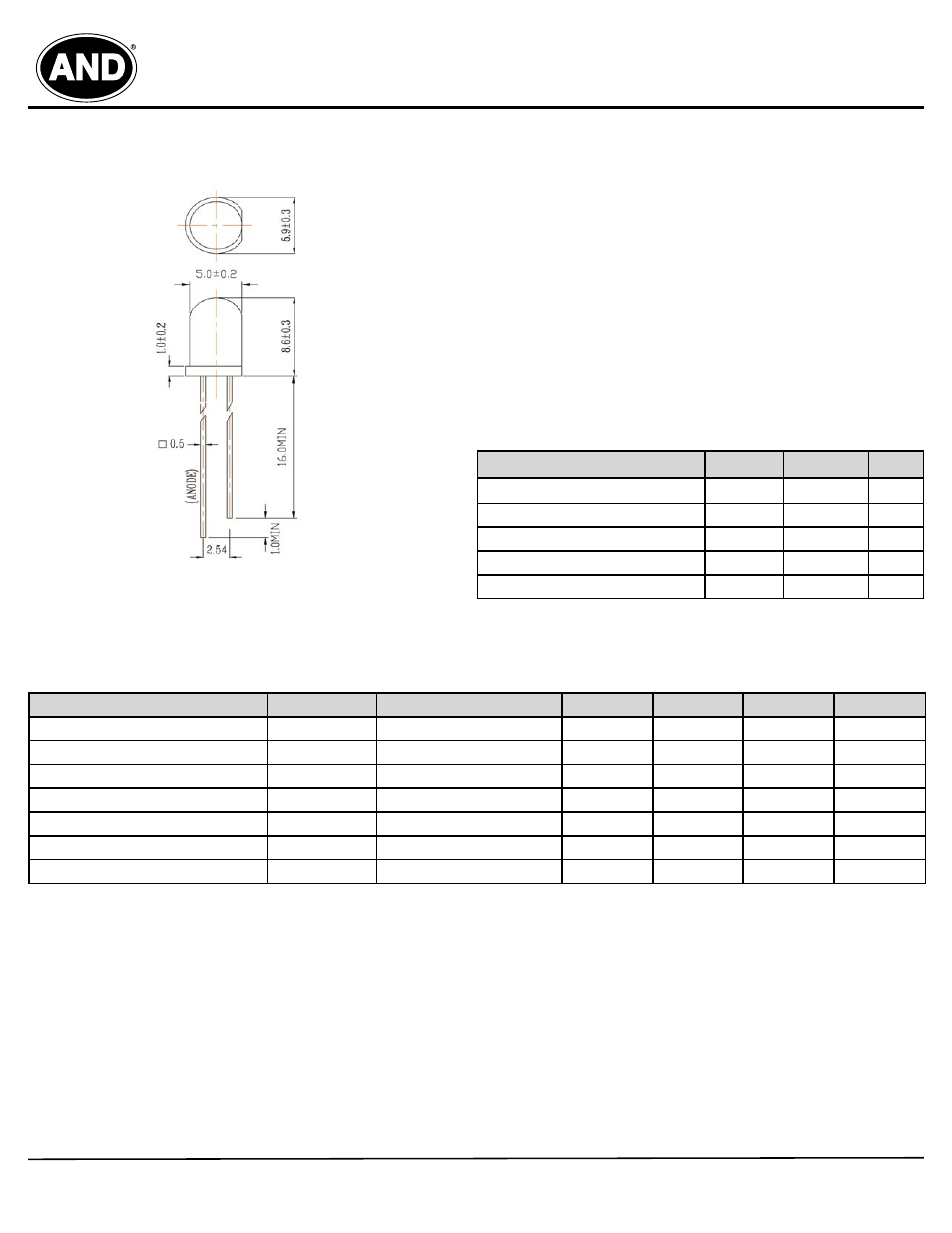Purdy AND412HG User Manual
Ptoelectronics, And412hg, And412hg ultra bright led lamps: type 3

O
PTOELECTRONICS
O
PTOELECTRONICS
O
PTOELECTRONICS
Purdy Electronics Corporation • 755 North Pastoria Avenue • Sunnyvale, CA 94085-2918
Tel: 408-523-8200 • Fax: 408-733-1287 • [email protected] •
www.purdyelectronics.com
1
9/4/12
AND412HG
Ultra Bright LED Lamps: Type 3
AND412HG
InGaN High Intensity Blue Gree Light Emission
T-1 3/4 Package (5mm)
Features
• 5 mm (T1-3/4) Package
• Available on tape and reel
• Peak wavelength (λ
P
= 505 nm) high bright emission
• All plastic mold type, clear colorless lens
• Low drive current: 1 to 20 mA DC
• Excellent On-Off contrast ratio
• Fast response time, capable of pulse operation
• High power intensity — suitable for indoor/outdoor applications
• High reliability
• RoHS compliant
Maximum Ratings (Ta - 25 ºC)
Characteristic
Symbol
Rating
Unit
Forward Current
I
F
30
mA
Reverse Voltage
V
R
5
V
Power Dissipation
P
D
120
mW
Operating Temperature Range
T
OPR
-40 to 85
ºC
Storage Temperature Range
T
STG
-40 to 100
ºC
Electro-Optical Characteristics (Ta = 25ºC)
Item
Symbol
Test Condition
Minimum
Typical
Maxiumum
Unit
Forward Voltage
V
F
I
F
= 20 mA
–
3.5
4.0
V
Reverse Current
I
R
V
R
= 5 V
–
–
10
μ
A
Luminous Intensity
I
V
I
F
= 20 mA
1,250
2,200
–
mcd
Peak Emission Wavelength
λ
P
I
F
= 20 mA
–
505
–
nm
Spectral Line Half Width
Δλ
I
F
= 20 mA
–
40
–
nm
Dominant Wavelength
λ
d
I
F
= 20 mA
500
–
510
nm
Full Viewing Angle
2 θ 1/2
I
V
= 1/2 Peak
–
12
–
degree
Product specifications contained herein may be changed without prior notice.
I
Weight: 0.31g Unit: mm
Precaution
Please be careful of the following:
1.
Dip soldering temperature: 260°C max
Soldering time: 5 sec. max
Soldering portion of lead: up to 1.6 mm from the body of the device
2.
The lead can be formed up to 5 mm from the body of the device without forming stress.
Soldering should be performed after the lead forming.
